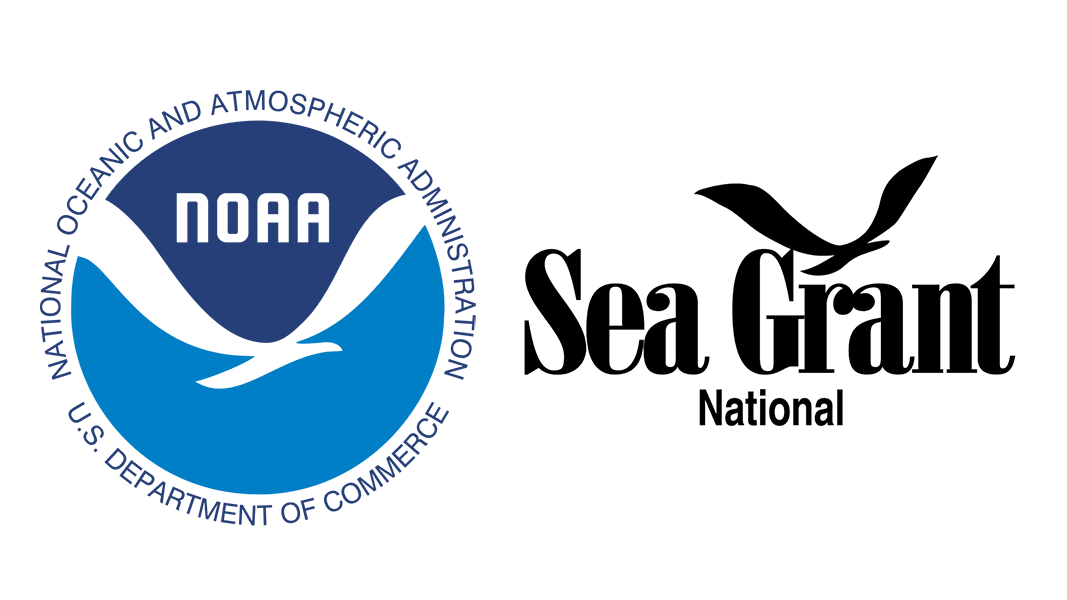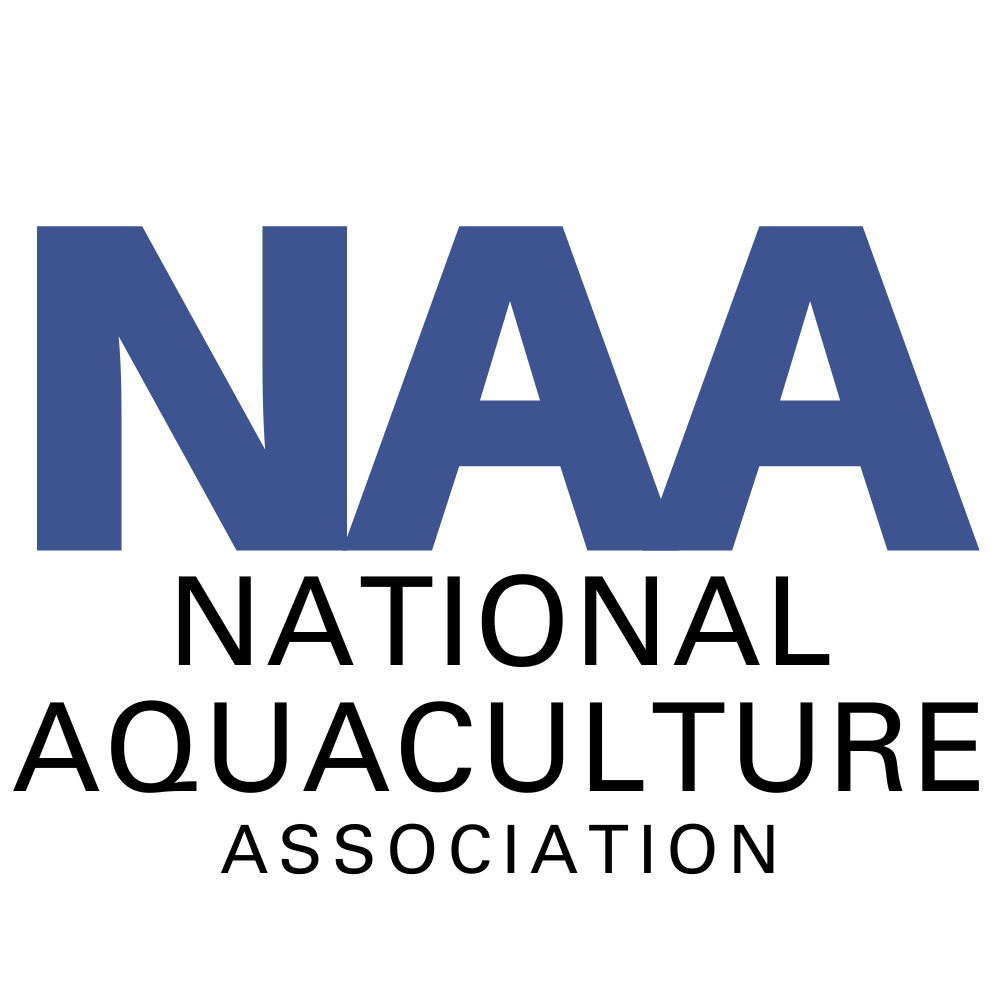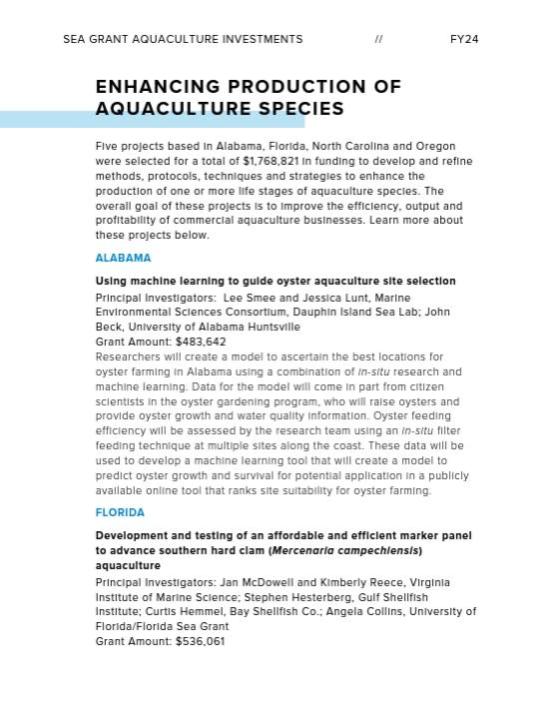
NOAA Sea Grant to invest $8.8 million to enhance aquaculture production, capacity and knowledge sharing.
To further support sustainable U.S. aquaculture, NOAA Sea Grant selected 33 projects totaling $8,821,710 in fiscal year 2024 federal funding. The projects will span coastal and Great Lakes states and territories with a focus on enhancing aquaculture species production, boosting aquaculture literacy and knowledge sharing, and strengthening aquaculture research and extension capacity.
The areas of strategic investment and project details are described below. Grant recipients must match 50% of the awarded federal funding with non-federal funds.
Enhancing production of aquaculture species
Five projects based in Alabama, Florida, North Carolina and Oregon were selected for a total of $1,768,821 in funding to develop and refine methods, protocols, techniques and strategies to enhance the production of one or more life stages of aquaculture species. The funded research will specifically answer questions related to oysters, hard clams, macroalgae, striped bass and red seaweed. The overall goal of these projects is to improve the efficiency, output and profitability of commercial aquaculture businesses.
Regional aquaculture communications and literacy collaboratives
Three regional projects in the Great Lakes, the Southeast and the West Coast (including Alaska and the Pacific Islands) were selected for a total of $2,249,884 in funding to create regional aquaculture communications and literacy collaboratives. The projects are multi-Sea Grant program efforts to address aquaculture communications and literacy needs that will benefit the aquaculture community, seafood consumers and the general public.
Aquaculture technologies and education travel grants
Massachusetts Institute of Technology (MIT) Sea Grant was selected to receive an aquaculture technologies and education travel grant for $26,000. In partnership with MIT International Science and Technology Initiatives, MIT Sea Grant will recruit and support an MIT student to complete a 10-week aquaculture-focused internship with SINTEF Ocean, a research organization in Norway. The intern will learn about offshore aquaculture systems and technologies for farming Atlantic salmon, of which Norway is the world’s largest producer. MIT Sea Grant will also conduct outreach to share the innovative aquaculture systems and technologies from Norway with diverse audiences.
Aquaculture Supplemental Funding
Sea Grant selected 24 projects for a total of $4,777,005 in funding to support and improve aquaculture capacity at Sea Grant programs. Projects will focus on local and regional priorities, including aquaculture research, extension, education and communication activities, and they will support new and existing staff to expand aquaculture-related activities. Learn more about these projects below.
Alaska Sea Grant
Alaska Sea Grant will support graduate student research exploring how mariculture farms impact sea otter prey communities to help inform the management of potential sea otter-mariculture interactions.
California Sea Grant
California Sea Grant will support two staff positions to build and further extension programs of integrated applied research, community engagement and education that will advance sustainable aquaculture and address coastal and marine issues in Central and Southern California.
Connecticut Sea Grant
Connecticut Sea Grant will conduct two projects to gather data to improve understanding of the population status of the northern quahog clam (Mercenaria mercenaria) in Connecticut and analyze the nutritional content of cultivated sugar kelp (Saccharina latissima), which will fill key knowledge gaps for the local aquaculture industry.
Florida Sea Grant
Florida Sea Grant will conduct two projects. The first will support research in the advancement of machine learning (i.e., artificial intelligence) as applied to aquaculture operations, particularly recirculating aquaculture systems. The second will continue to expand student training through their HARVEST program (Helping Aquaculture Reap Value and Enhance Student Training), placing 13 student interns with aquaculture businesses.
Georgia Sea Grant
Georgia Sea Grant will establish an aquaculture research traineeship to enhance aquaculture knowledge in partnership with Valdosta State University.
Guam Sea Grant
Guam Sea Grant will accelerate the expansion of Guam’s aquaculture industry by researching and implementing targeted marketing strategies, including outreach collaborations with restaurants and hotels and a fish fry competition amongst Guam’s chefs
Hawai'i Sea Grant
Hawai’i Sea Grant will support extension faculty to conduct outreach activities and technology transfer trainings that address aquaculture-related needs in Hawai’i and the U.S.-affiliated Pacific Islands and paid internships for students and community members to provide hands-on experience with aquaculture industry partners.
Maine Sea Grant
Maine Sea Grant will further aquaculture outreach and education activities such as hands-on farmer training workshops, provide opportunities for Maine residents to learn about sea farming and its impacts and conduct applied research in partnership with farmers that addresses topics of emerging interest.
Louisiana Sea Grant
Louisiana Sea Grant will test, advance and share quality management techniques for oyster nurseries to facilitate successful farmer-run nurseries and support reliable access to oyster seed.
Maryland Sea Grant
Maryland Sea Grant will further aquaculture-related research, outreach and education activities by supporting an aquaculture education and professional development coordinator and a proposal and reporting coordinator.
Mississippi-Alabama Sea Grant Consortium
Mississippi-Alabama Sea Grant Consortium will conduct a phase II for their Commercial Oyster Aquaculture Sector Training (COAST) Program, which began in 2023, to further training and networking for oyster industry apprentices. This workforce development initiative provides funding for apprentices to receive hands-on training in the oyster aquaculture industry.
MIT Sea Grant
MIT Sea Grant will continue a previous project that brings engineering students together with aquaculture practitioners to solve challenges with robotic and autonomous physical intervention, such as oyster basket management and oyster nursery processes, similar activities with the scallop aquaculture industry and general autonomous aquaculture environmental monitoring.
Michigan Sea Grant
Michigan Sea Grant will support graduate student research to determine the susceptibility of invasive Asian Carp species to two emerging viral infections that are co-circulating in Michigan in connection to carp aquaculture, which will guide wildlife management agencies about the design of adequate containment strategies.
Minnesota Sea Grant
Minnesota Sea Grant will continue investigating a cost-effective diet for early stages of Yellow Perch and Golden Shiner, initiate a feasibility study for commercial aquaculture production of Golden Shiner and collaborate with Little Earth of United Tribes on outreach and youth workforce development for their aquaponics facility.
New Hampshire Sea Grant
New Hampshire Sea Grant will conduct two projects to develop a roadmap for implementing professional trainings for local women in aquaculture and to better understand current and future crab communities in New Hampshire salt marshes and subtidal areas to help guide local management decisions.
New York Sea Grant
New York Sea Grant will further support and provide guidance to the developing aquaculture industry in New York State by bringing together the diverse sectors in the Great Lakes (land-based finfish farms) and Long Island (shellfish and seaweed cultivation) regions and improving areas of need identified through industry assessment.
North Carolina Sea Grant
North Carolina Sea Grant will sustain support for the Shellfish Farming Academy, the extension pilot of alternative grow out practices to mitigate oyster mass mortality risk, and communications and outreach for public awareness of shellfish mariculture and coastal development challenges and solutions.
Ohio Sea Grant
Ohio Sea Grant will run a research competition to answer key questions about Ohio markets for aquaculture versus stocking and food fish products to inform industry, agency, regulator and consumer audiences.
Rhode Island Sea Grant
Rhode Island Sea Grant will provide a secondary level of educational programming for aquaculture industry members seeking to enhance their science-based knowledge related to advanced business practices, conflict mitigation for the community arena and accessing available government resources.
Texas Sea Grant
Texas Sea Grant will support the nascent cultivated oyster mariculture industry in Texas by training restaurant servers to educate consumers about Texas oysters and assisting new farms in implementing sustainable practices and obtaining certifications.
Virginia Sea Grant
Virginia Sea Grant will partner to create fellowship and internship opportunities that benefit local students and the aquaculture industry and provide communications support to ongoing funded aquaculture projects, sharing the results of these projects via various conferences.
Washington Sea Grant
Washington Sea Grant will enhance the resilience of shellfish aquaculture in Washington by supporting capacity with ecosystem-based management operations in the Willapa-Grays Harbor Estuary Collaborative and Tide’s Out—an aquaculture crew and manager training program.
WHOI Sea Grant
WHOI Sea Grant will investigate the viral genome and the expression of core viral genes within neoplastic cells of hard clams (Mercenaria mercenaria) to improve understanding of a disease leading to substantial mortality in farmed hard clams.
Wisconsin Sea Grant
Wisconsin Sea Grant will sustain the reach and impacts of the Eat Wisconsin Fish initiative, revise the Consumer’s Guide to Wisconsin’s Farm-Raised Fish and organize and facilitate an aquaculture workshop and listening session in Madison, the state’s capitol.
Download the full list of funded projects and descriptions here.
For additional information, contact Mark Rath (mark.a.rath@noaa.gov) or Chuck Weirich (charles.weirich@noaa.gov).


